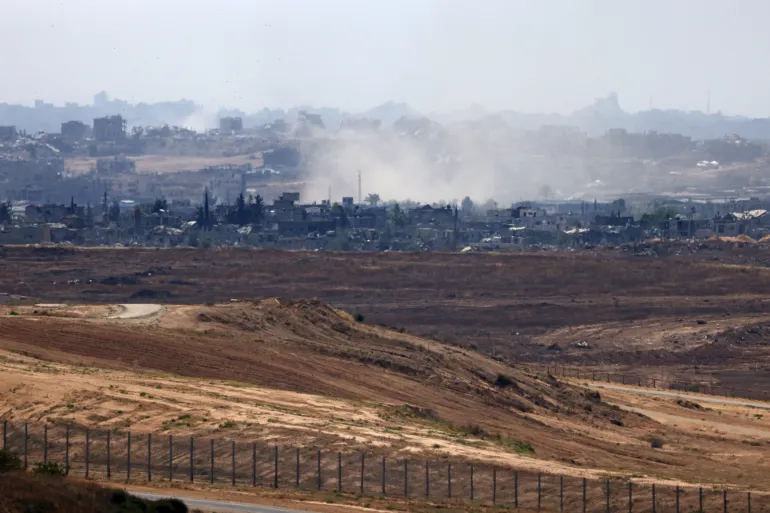The United Nations has issued a stark warning that more than 95% of Gaza’s agricultural land has become unusable due to the ongoing Israeli military offensive, jeopardizing food security for the region’s population.
According to a report released on Sunday by the UN’s Office for the Coordination of Humanitarian Affairs (OCHA), the continued bombardments, restrictions on movement, and destruction of infrastructure have rendered the vast majority of Gaza’s once-productive farmland either destroyed or inaccessible.
The devastation of agricultural land has exacerbated the already dire humanitarian crisis in the besieged enclave. The UN report notes that crops, greenhouses, irrigation systems, and poultry farms have been decimated by both direct attacks and the lack of access for maintenance and harvesting.
OCHA stated, “The destruction and ongoing insecurity make it virtually impossible for farmers to work their lands. The consequences for Gaza’s food supply and economic resilience are severe.”
Farmers in Gaza have long depended on agriculture as a primary source of income, with many families cultivating olives, citrus fruits, and vegetables. However, the escalating conflict has not only displaced thousands of residents but has also crippled key agricultural sectors.
The UN’s Food and Agriculture Organization (FAO) and the World Food Programme (WFP) have both expressed alarm over the increasing food insecurity. The WFP reported that nearly the entire population of Gaza is facing crisis levels of hunger, with food aid deliveries severely restricted due to the conflict.
In one particularly affected region, north of Khan Younis, fields once rich with produce now lie barren, covered with debris from nearby airstrikes. Farmers interviewed by local media said they have lost entire harvests and now rely on limited food rations for survival.
Access restrictions imposed by Israeli forces have further hindered efforts to assess and repair agricultural damage. The UN agencies have called for immediate, unhindered humanitarian access to allow food and aid distribution and begin land rehabilitation where possible.
Martin Griffiths, the UN’s humanitarian chief, called the situation “catastrophic” and stressed that Gaza’s agricultural collapse could have long-term consequences even if the violence stops.
“Restoring the region’s agricultural capacity will take years, and in the meantime, people are at real risk of starvation,” Griffiths warned.
The ongoing Israeli offensive, now in its seventh month, has led to widespread destruction across Gaza’s civilian infrastructure. The conflict has killed tens of thousands and displaced over a million people, according to local and international estimates.
Human rights groups and aid organizations have urged for an immediate ceasefire to enable humanitarian relief and prevent famine. However, ceasefire talks remain stalled, and fighting continues.
As the situation deteriorates, the UN and its partners are appealing for increased international funding and pressure to secure humanitarian corridors and prevent a deeper collapse in Gaza’s food system.
Source; Al Jazeera



